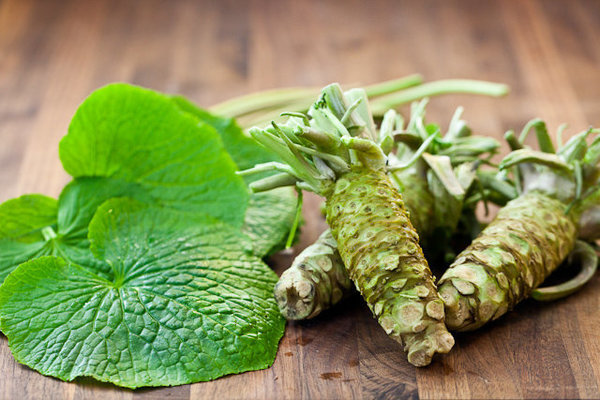The health benefits of Bishop’s weed or Ajwain seeds for children include remedy against diarrhea and dysentery, remedy against indigestion, gastric ulcers, cure for respiratory diseases, acts as a detoxifying agent, it is a very good antimicrobial, possesses anthelmintic properties and is a cure for earache and boils in the ear.
Bishop’s Weed is known by different names including Ajwain or Ajowan or carom seeds or thymol seeds. They can be commonly found in Asia and Africa and for this reason they are used mainly in many cuisines throughout Asia and Africa. The scientific name for Bishop’s Weed or Ajwain seeds is Trachyspermum ammi.
These seeds are very popular in India, particularly for treating ailments of infants and toddlers. In most Indian households with infants or toddlers, Ajwain seeds are a must. Bishop’s Weed has been mentioned many a times in Ayurveda for its curative properties. Not only in Ayurveda, but in traditional medicine in Greece which is believed to the ancestor of modern medicine. The scientific name itself has been borrowed from Greek language which means ‘rough seeded’.

Bishop’s Weed gives out a strong but pleasant aroma and the fruit pods that contain the seeds have the highest amount of aroma packed inside them. These fruit pods which often have been confused as seeds are used to produce essential oil.
What is the best time to introduce Bishop’s Weed seeds?
Bishop’s Weed seeds have been traditionally used as medicine for different ailments and issues that children suffered. So, it is better to introduce it to your child who’s above 1 year.
Health benefits of Bishop’s Weed seeds for children
Here are some of the health benefits of Bishop’s Weed seeds for children.
Cure for diarrhea and dysentery: A teaspoon of Bishop’s Weed along with rock salt boiled in a glass of water can be given to cure diarrhea, dysentery, indigestion, colic and flatulence. After you boil the seeds, make sure to filter out the seeds before you give it to your child. The volatile oil extracted from the seed is also very effective and can be given in doses of 1 or 2 drops. (Bakhru, Herbs That Heal).
Cure for respiratory diseases: Bishop’s Weed seeds are effective in controlling and cure respiratory diseases. For common cold, inhaling the boiled seeds of Bishop’s Weed is recommended. Bishop’s Weed can also be given in case of bronchitis. A teaspoon of the seeds along with buttermilk can act like an expectorant, relieving from phlegm. For influenza, the seeds can be chewed along with rock salt and a piece of clove. (Bakhru, Herbs That Heal).
Gastro-protective properties: Apart from aiding in digestion, Bishop’s Weed seeds are also useful for their gastro-protective properties. The seeds displayed antiulcer activity which can be very useful if your child is suffering from gastric ulcers. (Jeet K et al, 2012).
Detoxification property: Bishop’s Weed seeds also possess detoxification property. The seeds can reduce the effect of toxins on one’s body which can accumulate over time. By giving Bishop’s Weed seeds to your child, you can make sure that no toxin accumulation takes place. (Jeet K et al, 2012).
Antimicrobial property: The seeds of Bishop’s Weed possess antimicrobial properties. The extracts from the seeds displayed antibacterial properties even against some of the persistent and resistant bacteria that resist multi-drug and multi generation antibiotics. Bishop’s Weed seeds have an excellent use in controlling infections. Apart from this, when Bishop’s Weed seeds are taken, it has been found that they do not go after the probiotic bacteria living in our system. (Jeet K et al, 2012).
Anthelmintic properties: Anthelmintic or worm-killing property is another property worth mentioning. Children and toddlers especially can be vulnerable to worm infestation. These worms including tape worms make the small intestine as their residence, feeding off on the pre-digested food. By giving Bishop’s Weed seeds you can make sure to kill such worms. (Jeet K et al, 2012).
Cure for earaches and boils in the ear: One of the traditional uses of Bishop’s Weed seeds is for curing earaches as well as boils in the ear. Not more than a teaspoon of the seeds must be boiled in a 2-3 spoons of sesame oil until the oil turns red. After you cool down the oil to body temperature, it can be used as eardrops. (Dwivedi et al, 2012).
Measures to be taken while using Bishop’s Weed seeds
Here are some of the important measures to be taken while using Bishop’s Weed seeds.
Abortifacient property: According to Web MD, Bishop Weed seeds should not be given to pregnant women. One of the biochemicals found in Bishop Weed seeds, khellin is an abortifacient. It can induce uterine contractions.
Can counteract with medications: Bishop’s Weed can interact with medications by slowing down the rate at which medicines are broken down in the liver. It can increase the side-effects of some medications. If you are using any medications, first ask your doctor about interactions with Bishop’s Weed seeds.
Can interact with photosensitizing medications: Bishop’s Weed can increase photosensitivity or sensitivity to sunlight. This can also interact with medications that cause photosensitization. If you are using drugs that can increase photosensitivity, then do not use Bishop’s Weed seeds.
Can decrease blood clotting: Bishop’s Weed seeds can slow down blood clotting and hence, it should not be used while taking anticoagulant medications. It aggravates anticoagulation and hence, even a small cut can lead to massive bleeding.
Nutritional value in Bishop’s Weed seeds
According to Herbs That Heal by HK Bakhru, the nutritional components found in 100 g of Bishop’s weed include
| Nutritional Value | Per 100 g |
| Energy | 363 Cal |
| Moisture | 7.4% |
| Protein | 17.1% |
| Fat | 21.8% |
| Minerals | 7.9% |
| Fiber | 21.2% |
| Carbohydrates | 24.6% |
Mineral traces include calcium, phosphorous, iron and vitamins include carotene, thiamine, riboflavin and niacin.












